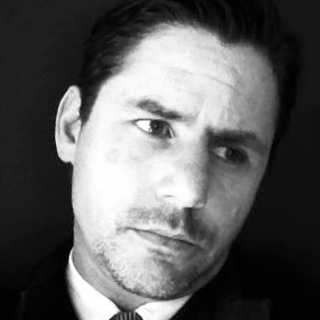
“A true artist will follow their vision, no matter what!”
— Emmylou Harris
On paper, some songs should never work. Some singers should never succeed. Some writers should think about putting down their pens. And some actors should continue bartending or just pull the covers back over their head and stay in bed. And yet there are those wonderful God-ordained moments when that same person musters up enough courage to shut out the naysayers and critics, and moved by both inner passion and conviction, rolls up their sleeves and tries. Because they threw caution to the wind, followed their inward convictions, and squeezed a little harder on the lemon peel of life, a fire is lit in their soul that cannot be quenched.
People will see it. The hidden spark of the divine planted in each and every soul cannot be ignored. With mouths hanging open, scoffers and mockers will fall silent. And those longing to hear a fresh voice will hasten to listen. Like dry wood thrown on a young flame, the fire will catch, spread, and soon blaze.
Because one person tried, a bonfire is lit.

I recently read a biography on one such person named Johnny Cash. The author, Steve Turner, makes a comment at the end of the book concerning Johnny Cash which perfectly communicates what I think is true of all artists:
“As with many legends in popular music, it’s not easy to say exactly what made Cash great. He never became a great guitarist, his voice had a limited range, and his lyrics veered between poetry and doggerel. But the combination of that voice, those words, and that guitar far exceeded the greatness of any one element. He was a presence, a form of energy, a vehicle for truth.”
There is something unique about the human being. God’s most cherished design, “fearfully and wonderfully made”, when working as he or she should, displays the Creator’s genius like no other animal. A person fully alive is more captivating than any wonder of nature or star shining in the sky. We are his workmanship. What an enormous privilege that is.
Turner concludes with what he thinks was the cause of Cash’s greatness, “People believed what he was saying…And he didn’t care. He would just sing.” Kris Kristofferson, a personal friend of Johnny Cash and famous country singer in his own right, agreed, “I admired the way he spoke his own words. There was no question of me ever trying to imitate what he was doing because he was as unique as a snowflake.”
UNIQUE AS A SNOWFLAKE

I have developed a theory about the human creature after studying theology and anthropology over the years. I call it the “Facet Theory.” It works like this: Since God is infinite in his essence, there is no end to knowing or understanding his person. And as John 17:3 says, “Now this is eternal life: that they may know you, the only true God, and Jesus Christ, whom you have sent.” Eternity is going to be a continual surprise, heavenly day after heavenly day, of God’s wonders being revealed to those who are his own and it will never end. God is inexhaustible.
But while we are waiting to see him directly, he sends human beings to reflect his glory. Jesus was sent to perfectly display God in a person, as Hebrews 1:3 declares, “The Son is the radiance of God’s glory and the exact representation of his being.” But now that Jesus is sitting at the right hand of the Father in heaven, he passed the role of image-bearing onto us. As Genesis 9:6 “For God made human beings in his own image.” And Galatians 1:15-16 gets even more specific, “But when God, who set me apart from my mother’s womb and called me by his grace, was pleased to reveal his Son in me.”
Stop on that a second.
Each person is of infinite value because each person bears his image. And each believer has an opportunity to reveal the Son of the Living God in their life. And on these two truths is where my “Facet Theory” takes root. Not only in a general sense do we bear God’s image, but in a unique sense, God chose little ol’ me to shine his light. No one else can display the image of God in the way I can. So, my unique personhood matters immensely. God wanted me to be seen so an aspect of him could be seen. Like a facet of a diamond, when I live in the power of the Spirit and passion of the soul, I shine the facet I was created to shine.
Kris Kristofferson was right; we are all as unique as a snowflake.
I was doing some research on snowflakes and listen to this amazing statement: “The probability that two snow crystals (a single ice crystal) or flakes (a snow crystal or multiple snow crystals stuck together) will be exactly alike in molecular structure and in appearance, is very minute. Since a typical small snow crystal might contain 1018 water molecules, we see that about 1015 of these molecules will be different from the rest. These unusual molecules will be randomly scattered throughout the snow crystal, giving it a unique design. Each winter there are about 1 septillion (1, 000, 000, 000, 000, 000, 000, 000, 000 or a trillion trillion) snow crystals that drop from the sky!”
When it comes to humans, even though we all may have two eyes, two ears, two hands, two feet, two legs, two arms, and one nose in the center of our skull, biologically speaking we are much more complex than snowflakes. In the smallest human chromosomes, the DNA molecule is composed of about 50 million nucleotide pairs; the largest chromosomes contain some 250 million nucleotide pairs and that is just the beginning of understanding our unique design. Each human being is also made with a singular soul/spirit constructed by the eternal, infinite God of the heavens. He sent us to shine uniquely as we are.
THE DIFFICULTY OF BEING DIFFERENT
It is hard to be different. And because it is hard to be different, people would rather hide their uniqueness than try. Jesus alluded to this natural tendency by encouraging believers not to bury their light under a bushel. But most of us do. We want to fit in. We hate to risk.
But why? I have wondered this for much of my adult life. I have found that I would rather slip in the back of a room, sink into the shadows, and sit on the soft sofa watching others try. As Neil Postman in the book “Amusing Ourselves to Death” prophesized a time when watching others would become the primary pastime of the apathetic soul, “In Huxley’s vision, no Big Brother is required to deprive people of their autonomy, maturity, and history. As he saw it, people will come to love their oppression, to adore the technologies that undo their capacities to think.” Think about what a tragedy that would be to lose the capacity, or desire, to think. He goes on to warn, “What Orwell feared were those who would ban books. What Huxley feared was that there would be no reason to ban a book, for there would be no one who wanted to read one. Orwell feared those who would deprive us of information. Huxley feared those who would give us so much that we would be reduced to passivity and egoism.” I think this is both accurate, prophetic, and ultimately, terrifying.
From my own experience and meditations, I think people also quit trying for a number of more basic reasons than just our addiction to entertainment:
1. It is easier to be lazy than to exert effort and fail. Why give of yourself when you may be misunderstood, ridiculed, or may even be ignored? It is far easier to be the critic than to take the criticism. Philosophically we live in a day and age of deconstruction. Destroying what others have built is much easier than building yourself. Look at Twitter and most forms of social media, they have been designed to destroy. One positive comment or opinion is met by a thousand negative ones. We have a sick pride in our ability to hurt others. It is far easier to sit behind a screen and criticize than it is to try and be criticized.
2. Jealousy lurks in the heart of every fallen man and woman. Right from the beginning of the biblical account, Satan’s initial rebellion was activated by pure envy, greed, and selfish want. “You said in your heart, ‘I will ascend to the heavens; I will raise my throne above the stars of God; I will sit enthroned on the mount of assembly, on the utmost heights of Mount Zaphon. I will ascend above the tops of the clouds; I will make myself like the Most High.’ But you are brought down to the realm of the dead, to the depths of the pit.” (Isaiah 14:13-15). The Devil failed; he could not acquire what he wanted most — significance on par with the Most High. So, he is spitting mad. And in his anger, he temps us to selfishly want what others have. When people succeed, those who don’t, throw Satanic slings and arrows. As Psalm 64:3-4 says, “They sharpen their tongues like swords and aim cruel words like deadly arrows. They shoot from ambush at the innocent; they shoot suddenly, without fear.” Johnny Cash himself said this, “The closer you are to the target, the more you will get shot at.”
3. We don’t know what true art is anymore. We have settled for cheap imitations, false fronts. Beauty has been traded for burlesque. Art and creativity is a matter of sharing your soul, it is not meant to imitate what people consider popular, but to express your God-designed uniqueness, shining radiantly your singular facet from the divine diamond.
DON’T SETTLE
Creating true art requires you to bare your soul. It asks of you your very own blood, sweat, and tears. It will not settle for cheap imitations. True art that moves others must include a part of you.
We have been duped into believing that uniqueness can be plastered on like a cheap Drag Queen wearing false eyelashes, gaudy lipstick, who is parading sparkly high heels to an intoxicated crowd. This kind of performance is easy, it costs nothing, and people will act impressed because otherwise they will be labeled as intolerant. And no one wants that label hanging over their head. We are not allowed to be honest anymore. So, creativity is now cosmetically put on, a microwave world of instant gratification. But this really is not art. This is not celebrating differences. Anyone can go to Comic-Con and dress up like their favorite Marvel character that they see on the big screen. Dying your hair, a new color of the rainbow takes nothing from your soul.
We are far too easily impressed.
Swimming in a sea of banality, our silly adolescent culture full of 20–40-year-old children who have been raised by indulgent parents, now think anything they mimic should be considered a masterpiece. Trophies and accolades for all! We have fallen for the fatal flaw of mediocracy, “When everything is considered great, nothing is.” So, what should be our response to a world gone bland?
Fight against the current. God wants you to be you! If it is true that you are indeed “fearfully and wonderfully made”, God’s “workmanship created in Christ Jesus” to “do good works”, you need to seek those works. And don’t be satisfied until you find them.
Will it be difficult to be different? Absolutely. Primarily because of all the earlier reasons listed. Will people understand? True art is always novel. And the novel, like a fine wine, is an acquired taste. But keep trying, people over time may eventually get it. And some may even begin questioning their place in this world because you tried.
What if no one notices? What if fame is not achieved and success is farther off than when you began? You need to reassess and ask yourself, “Why do you create art? For fame or for worship?” Amy Carmichael, the famous Irish missionary who spent 50 years spreading the gospel, writing inspirational Christian books, and rescuing sex-trafficked girls in India, at the age of 60 had a fall that severely injured her where she remained bedridden for much of her final two decades. However, she continued her inspirational writing, publishing 16 additional books, as well as revising others she had previously published. Biographers differ on the number of her published works, which may have reached 35 or as many as six dozen.
But in her bedridden condition, she compared her life to a canary in a cage that allowed her the time to focus on her wonderful Savior. She wrote during this time these wonderful words,
“You will, I believe and trust, become more and more in love with a crucified Savior. He wants lovers. Oh, how tepid is the love of so many who call themselves by His name. How tepid our own — my own — in comparison with the lava fires of His eternal love. I pray that you may be an ardent lover, the kind of lover who sets others on fire.”
This is the heart of the artist. An exquisite snowflake like no other, and does not melt because of other’s criticism or jealousy, but gets stronger like a piece of iron strengthened in the hottest of flame. A true artist is an iron snowflake, courageous enough to try.

Christopher J. Weeks is an author and has been a bartender, rugby player, salesman in the Chicago loop, teacher in Russia, and now for the last 25 years, he has been pastoring with his wife and four children at a rural church amidst the apple orchards of West Michigan farmland.





